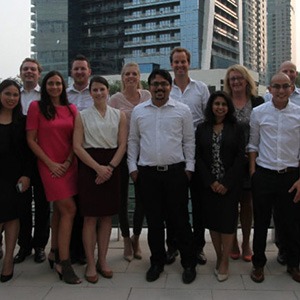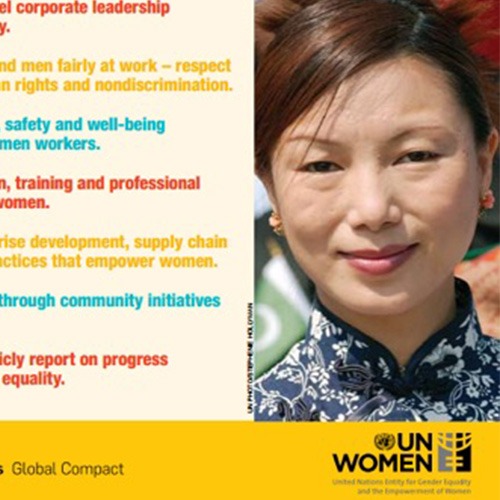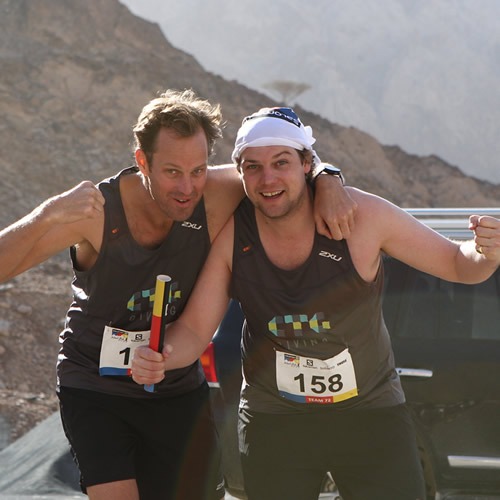How To Become An International Aid Worker

What you need to know before becoming an ambassador for change
I work as the Talent Acquisition Manager for CTG and source the skilled people we need to support fragile countries, ranging from the Ebola crisis to helping thousands of refugees fleeing conflict.
I am occasionally asked ‘how do I become an aid worker abroad?’ or ‘how do I get into humanitarian work?’
While it’s wonderful that celebrities, such as Angelina Jolie, use their fame to create awareness of issues and the help needed around the world, the reality of working full time in a crisis zone is very different from a brief visit surrounded by the media.
It might surprise many that international aid is a very competitive field to get into – there are a lot of people who want to help others, despite all the challenges of working in war-torn countries.
The truth is, this work is not for everyone and many will not have the skills or, most importantly, the resilience needed to operate effectively as an aid worker overseas. However, for those with real passion, who thrive in the most challenging places and are really serious about this as a career, here I share my insights into how you can build experience and ensure you have the resilience for this rewarding work.
What skills will I need to become an aid worker?
It’s about much more than qualifications – a Masters in International Relations is not enough in itself, though it is one of the relevant qualifications you could obtain. However, many of the higher level courses these days build in up to six weeks relevant overseas volunteering experience which can prove invaluable.
I was interested that Jethro Pettit, convenor of the MA in development studies, Institute of Development Studies, University of Sussex says in an article for the Guardian: “If you really want a career in international development, having a master’s degree makes a big difference. But you don’t necessarily have to do it straight away. Because they think they need it, students go leaping into it straight from University. But you won’t necessarily get the most out of an MA programme if you don’t have some experience – and employers want both.”
It is true that not only is experience normally critical to getting a job as an aid worker, but actually it could help you to get more from the Masters itself.
How do I apply to become a Humanitarian Aid Worker?
Candidates come from a wide variety of backgrounds. I always suggest volunteering in the first instance to see if it is for you. This also helps support any future applications.
We are looking for transferable skills – someone who can turn their existing skills to good use in these environments. This can be anyone from a Nurse who has worked on a trauma ward to a Delivery Driver who has experience of operating in challenging environments.
The key is to learn from voluntary work because the key ingredient we need from candidates is resilience. When applying to become a Humanitarian Aid Worker, always show (demonstrate through examples) how you have responded to crises or really difficult challenges and show that you know what it is like to work in a war-torn country.
The media portrayals of crisis zones are sanitised – you don’t get to see the whole picture and you have to show that you understand that. Show your practical experience and your adaptability.
We can’t test you for these environments, but your past performance helps us to predict your future performance. Demonstrate you have been helpful, compassionate, resourceful and practical.
How can you get experience to become an aid worker?
Of course, saying you need experience both for a Master’s degree and to get a job, sounds like the famous Catch 22!
What you need to do is think laterally about building this experience, either as a volunteer or in other jobs. What we are looking for is the ability to show that you have seen and thrived in the most challenging of work environments.
What we are concerned about is the safety and protection of our employees but also ensuring that anyone going to a fragile country can immediately make a contribution and be effective. The last thing anyone needs is for someone for whom the aid is being provided to end up consoling an Aid Worker because they are so distressed and affected.
So what experience can you get? I mentioned above about working or volunteering as, for example, a nurse or a driver in a challenging environment. Teaching in troubled inner city schools, from London to Bogota, or volunteering overseas may also give opportunities to show resilience.
The other aspect is to demonstrate experience of working on your own. While team-working is important, so is the ability to work on your own, often in quite isolated circumstances. We have Country Managers who work to support Aid Workers on the ground. However, transport and communications can often be difficult so we need people who can operate independently. If you don’t have the right nature for this kind of situation you could ‘burn out’ and be unable to perform.
Build up your networks
There is no doubt that if you volunteer you can be on hand when job opportunities come up. This is a field where people do rely on recommendations, so you also want to build solid networks and make sure people know what you are looking for.
Do have a good, up to date LinkedIn profile and connect widely to people in this field – alumni from your University, connections from internships and volunteering, even connections from volunteer projects you did at school.
It’s worth remembering we, as will most people, do strong reference checks to make sure you are up to the task – choose your referees wisely so that we can get a true picture of your strengths.
Bring a skill
Alexander Talty writes on Forbes Seven tips for becoming an international aid worker and rightly points out that having skills like nutrition, finance or nursing can be an easy way to fast-track your career with a humanitarian organization. Engineers for reconstruction are in demand and also Economists.
What does it take to become an Aid Worker?
Ultimately, we want people who will thrive in these environments and who are up for the challenge. That comes down to pride in what you are doing.
That pride could be the same as the pride a dress maker in Milan has for her latest creation or a builder takes in completing a new structure. This work is utterly exhausting so you must vehemently believe in what you are doing and be able to draw pride from your efforts.
This is not a 9-5 job. Just getting to these locations could involve a 10-12 hour drive and you will have to work all hours of the day and night. However, the work you do will touch other people’s lives in ways few other careers can hope to match.



